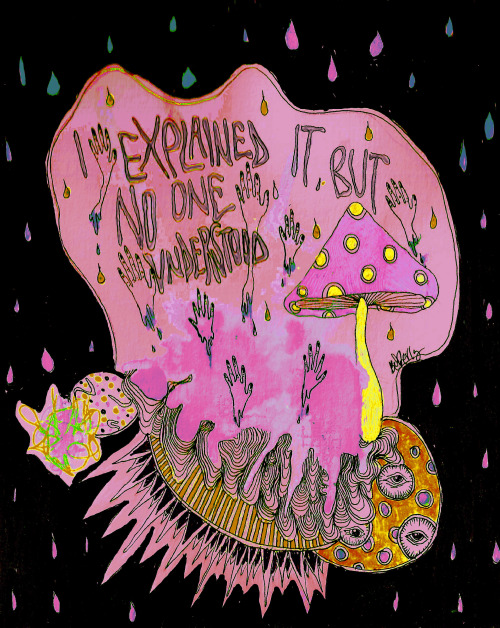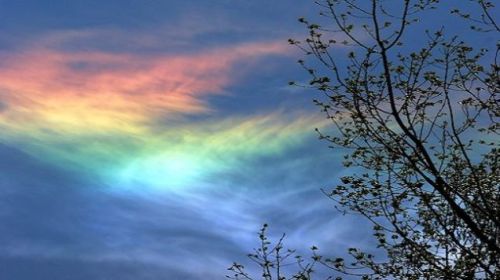Rordes - A.F.K

More Posts from Rordes and Others



How Do Cargo Spacecraft Work?

Today is the day that our commercial partner, Orbital ATK, has set for the launch of its fourth contracted mission to the International Space Station. The Cygnus spacecraft will carry more than 7,000 pounds of science and research, crew supplies and vehicle hardware to the orbital laboratory.
How Does it Launch?

This mission is the first Cygnus mission to utilize NASA’s Kennedy Space Center and launch from the Cape Canaveral Air Force base in Cape Canaveral, Florida.
The cargo will be launched inside the Orbital ATK Cygnus spacecraft using a United Launch Alliance Atlas V rocket.
But how does it get there? Is there someone on the ground controlling and directing it to the space station? Surprisingly, no. After launch, the Cygnus spacecraft is automated until it gets near the station. At that point, the robotic controllers use the CanadArm2 to reach out and grapple it (grab), and then berth (connect) it to the station.
What’s Inside?

In order to keep the thousands of pounds of supplies, science and hardware from moving during launch and in flight, the cargo is packed in bags and strapped to the walls.
The new experiments arriving to the space station will challenge and inspire future scientists and explorers. A few of the highlights are:
The Packed Bed Reactor Experiment (PBRE) - This experiment (image below) will study the behavior of gases and liquids when they flow simultaneously through a column filled with fixed porous media. The findings from this will be of interest in many chemical and biological processing systems as well as many geophysical applications.

BASS-M (Burning and Suppression of Solids – Milliken) - This experiment (image below) will evaluate flame retardant and/or resistant textiles as a mode of personal protection from fire-related hazards. Studying this in microgravity will aid in better designs for future textiles and benefit those who wear flame retardant and/or resistant protective apparel such as military personnel and civilian workers in the electrical and energy industries.

Space Automated Bioproduct Lab (SABL) - This equipment is a single locker-sized facility (image below) that will enable a wide variety of fundamental, applied and commercial life sciences research. It will also benefit K-16 education-based investigations aboard the space station. Research will be supported on microorganisms (bacteria, yeast, algae, fungi, viruses, etc.), animal cells and tissues and small plant and animal organisms.

Nodes Satellites – These satellites (image below) will be deployed from the space station to demonstrate new network capabilities critical to the operation of swarms of spacecraft. They will show the ability of multi-spacecraft swarms to receive and distribute ground commands, exchange information periodically and more.

Holiday Surprises - With the upcoming holidays the crew’s family has the opportunity to send Christmas gifts to their family members on the International Space Station.

What About After?
The spacecraft will spend more than a month attached to the space station before it’s detached for re-entry into Earth’s atmosphere in January 2016, disposing of about 3,000 pounds of trash. It will disintegrate while entering the atmosphere.

Want to Watch Launch?
Launch coverage begins at 4:30 p.m. EST on Thursday, Dec. 3 on NASA Television. Cygnus is set to lift off on the Atlas V at 5:55 p.m., the beginning of a 30-minute launch window, from Space Launch Complex 41.
In addition to launch coverage, a post-launch briefing will be held approximately two hours after launch. All briefings will air live on NASA TV.
UPDATE: Due to poor weather conditions, today’s launch has been scrubbed and moved to tomorrow at 5:33 p.m. EST. The forecast for tomorrow calls for a 30% chance of acceptable conditions at launch time. Continuous countdown coverage will be available on NASA Television starting at 4:30 p.m.

UPDATE 2: The uncrewed Cygnus cargo ship launched at 4:44 p.m. EST on Sunday, Dec. 6 on a United Launch Alliance Atlas V rocket from Space Launch Complex 41 on Cape Canaveral Air Force Station in Florida to begin its three-day journey to the orbiting laboratory.

Make sure to follow us on Tumblr for your regular dose of space: http://nasa.tumblr.com








-
 cocoablush reblogged this · 6 years ago
cocoablush reblogged this · 6 years ago -
 dontyousaythat liked this · 7 years ago
dontyousaythat liked this · 7 years ago -
 lifelovelucksmile reblogged this · 8 years ago
lifelovelucksmile reblogged this · 8 years ago -
 seensso liked this · 8 years ago
seensso liked this · 8 years ago -
 palmtreeparadiseprincess reblogged this · 8 years ago
palmtreeparadiseprincess reblogged this · 8 years ago -
 gotalikeit reblogged this · 8 years ago
gotalikeit reblogged this · 8 years ago -
 asdfghjkljulie reblogged this · 8 years ago
asdfghjkljulie reblogged this · 8 years ago -
 leilaniz-blog1 liked this · 8 years ago
leilaniz-blog1 liked this · 8 years ago -
 la-crayon liked this · 8 years ago
la-crayon liked this · 8 years ago -
 d-lyser reblogged this · 8 years ago
d-lyser reblogged this · 8 years ago -
 sneaks-a-toke-blog liked this · 8 years ago
sneaks-a-toke-blog liked this · 8 years ago -
 sneaks-a-toke-blog reblogged this · 8 years ago
sneaks-a-toke-blog reblogged this · 8 years ago -
 i-want-to-be-thinspo-blog reblogged this · 8 years ago
i-want-to-be-thinspo-blog reblogged this · 8 years ago -
 poppyceeds reblogged this · 8 years ago
poppyceeds reblogged this · 8 years ago -
 caguilera liked this · 8 years ago
caguilera liked this · 8 years ago -
 thebizzlesbaby reblogged this · 8 years ago
thebizzlesbaby reblogged this · 8 years ago -
 lockrose reblogged this · 8 years ago
lockrose reblogged this · 8 years ago -
 jboguisx-blog reblogged this · 8 years ago
jboguisx-blog reblogged this · 8 years ago -
 dad--urie-blog liked this · 9 years ago
dad--urie-blog liked this · 9 years ago -
 katchocolat reblogged this · 9 years ago
katchocolat reblogged this · 9 years ago -
 nao97 reblogged this · 9 years ago
nao97 reblogged this · 9 years ago -
 limeflavored reblogged this · 9 years ago
limeflavored reblogged this · 9 years ago -
 dianaagae reblogged this · 9 years ago
dianaagae reblogged this · 9 years ago -
 humb3r-blog liked this · 9 years ago
humb3r-blog liked this · 9 years ago -
 succubusx reblogged this · 9 years ago
succubusx reblogged this · 9 years ago -
 zehras11 liked this · 9 years ago
zehras11 liked this · 9 years ago -
 engelchenfranzi reblogged this · 9 years ago
engelchenfranzi reblogged this · 9 years ago -
 fitneeesss reblogged this · 9 years ago
fitneeesss reblogged this · 9 years ago -
 just-wanna-be-skinny-pls reblogged this · 9 years ago
just-wanna-be-skinny-pls reblogged this · 9 years ago -
 fell-aflower reblogged this · 9 years ago
fell-aflower reblogged this · 9 years ago -
 lesbian-heart reblogged this · 9 years ago
lesbian-heart reblogged this · 9 years ago -
 rosieveggie reblogged this · 9 years ago
rosieveggie reblogged this · 9 years ago -
 queenbitchuniverse reblogged this · 9 years ago
queenbitchuniverse reblogged this · 9 years ago -
 xohighmanxo reblogged this · 9 years ago
xohighmanxo reblogged this · 9 years ago -
 estelle00mary liked this · 9 years ago
estelle00mary liked this · 9 years ago -
 funplay74 liked this · 9 years ago
funplay74 liked this · 9 years ago -
 fashionloverforever reblogged this · 9 years ago
fashionloverforever reblogged this · 9 years ago